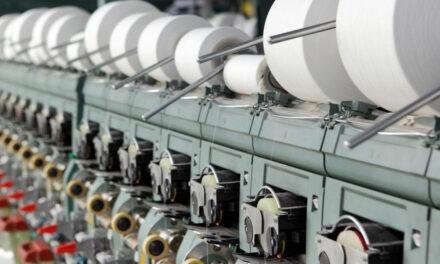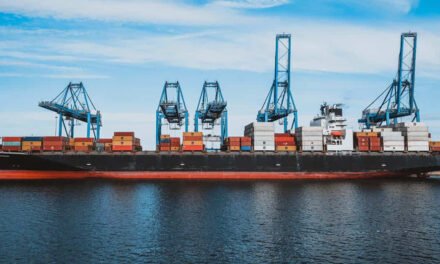 The Southern India Mills’ Association (SIMA) has expressed its sincere gratitude to the Hon’ble Prime Minister for the path-breaking decision to remove the Quality Control Orders (QCOs) imposed on polyester fibre, yarn, and filaments, a move that is poised to accelerate the growth of the man-made fibre (MMF) sector.
The Southern India Mills’ Association (SIMA) has expressed its sincere gratitude to the Hon’ble Prime Minister for the path-breaking decision to remove the Quality Control Orders (QCOs) imposed on polyester fibre, yarn, and filaments, a move that is poised to accelerate the growth of the man-made fibre (MMF) sector.
The consumption pattern of man-made fibres (MMF) and their blended textile products in the country has been undergoing a major transformation, aligning with the global trend of a 70:30 ratio in favour of MMF, which was earlier the reverse in India. The government’s continuous support and innovative initiatives, such as the Production Linked Incentive Scheme, National Technical Textiles Mission and the PM MITRA Park scheme have significantly promoted the growth of technical textiles that find applications both in everyday textile products and in core industrial sectors. This progress is fundamentally driven by the availability of quality MMF yarns and value-added products.
The Hon’ble Prime Minister’s GST rationalisation for the MMF textile value chain, reducing rates to 5% from 18% on fibres/filaments and from 12% to 5% on MMF yarns, has significantly lowered clothing costs, benefiting economically weaker sections. Additionally, the newly announced Export Promotion Mission supporting MSMEs, first-time exporters, and labour-intensive sectors is a commendable step to boost growth and competitiveness.
In a press release issued here today, Mr. Durai Palanisamy, Chairman of the Southern India Mills’ Association (SIMA), expressed his sincere gratitude to the Hon’ble Prime Minister, Shri Narendra Modi; the Hon’ble Union Minister of Commerce & Industry and Consumer Affairs, Food & Public Distribution, Shri Piyush Goyal; the Hon’ble Union Minister of Textiles, Shri Giriraj Singh; and the Hon’ble Union Minister of Chemicals & Fertilizers, Shri Jagat Prakash Nadda, for the removal of Quality Control Orders (QCOs) on polyester fibre, filaments, and yarn, which are the future growth engines, effective from 12.11.2025.
He stated that this path-breaking reform marks a significant milestone in positioning India as a global hub for man-made fibre (MMF)-based textiles and apparel. Mr. Durai further added that the removal of the QCO on Terephthalic Acid and Ethylene Glycol, the key raw material for manufacturing polyester fibre, is a welcome step that will enhance raw material availability and competitiveness. Overall, the removal of these QCOs is expected to pave the way for accelerated growth across the MMF textile value chain, encompassing yarns, fabrics, garments, made-ups, and technical textiles.
SIMA Chairman reiterated that this timely initiative would help prevent the closure of several powerloom units that are on the verge of becoming NPAs due to the non-availability and shortage of required fibres at competitive prices. He added that many domestic manufacturers of comfort wear and technical textile products had been struggling to procure fibres at globally competitive rates, resulting in a loss of market share built over decades. Furthermore, exporters were losing confirmed orders, as foreign buyers often insisted on sourcing fibres from nominated international suppliers, putting Indian manufacturers at a disadvantage.
SIMA Chairman further noted that the relaxation of QCOs will streamline the import of polyester and its raw materials, ensuring an uninterrupted supply to spinners, weavers, and processors. Competitive imports are expected to stabilize domestic prices, easing cost pressures on downstream manufacturers and exporters. This move has enabled small and medium enterprises to resume production efficiently, restoring cost competitiveness in both domestic and international markets and employment retention. Moreover, the decision has bolstered investor confidence, paving the way for diversification into technical textiles, recycled polyester, and other value-added MMF products, aligning with the government’s “Make in India” and “Atmanirbhar Bharat” initiatives. Overall, this step underscores the government’s commitment to fostering ease of doing business, global competitiveness, and a resilient textile manufacturing ecosystem in India.
The industry is confident that enhanced raw material availability, strengthened global competitiveness and ongoing FTAs will propel the MMF textile sector toward the target of achieving USD 350 billion textile business size by 2030.
SIMA chairman has appealed to the Hon’ble Prime Minister and the Hon’ble Minister of Textiles to remove the QCO imposed on VSF and filament yarn, the 2nd largest MMF raw material that needs to be made available at an internationally competitive rate in an uninterrupted manner to grab the emerging global market opportunities. He has added that removal of QCO on VSF and filament yarn is essential to facilitate the industry to produce vale added technical textiles, readymade garments and made ups.
The industry expresses its sincere gratitude to the Ministries of Textiles, Commerce & Industry and Consumer affairs for their consultative approach and proactive support to ensure the growth and sustainability of the MMF textile sector.





















